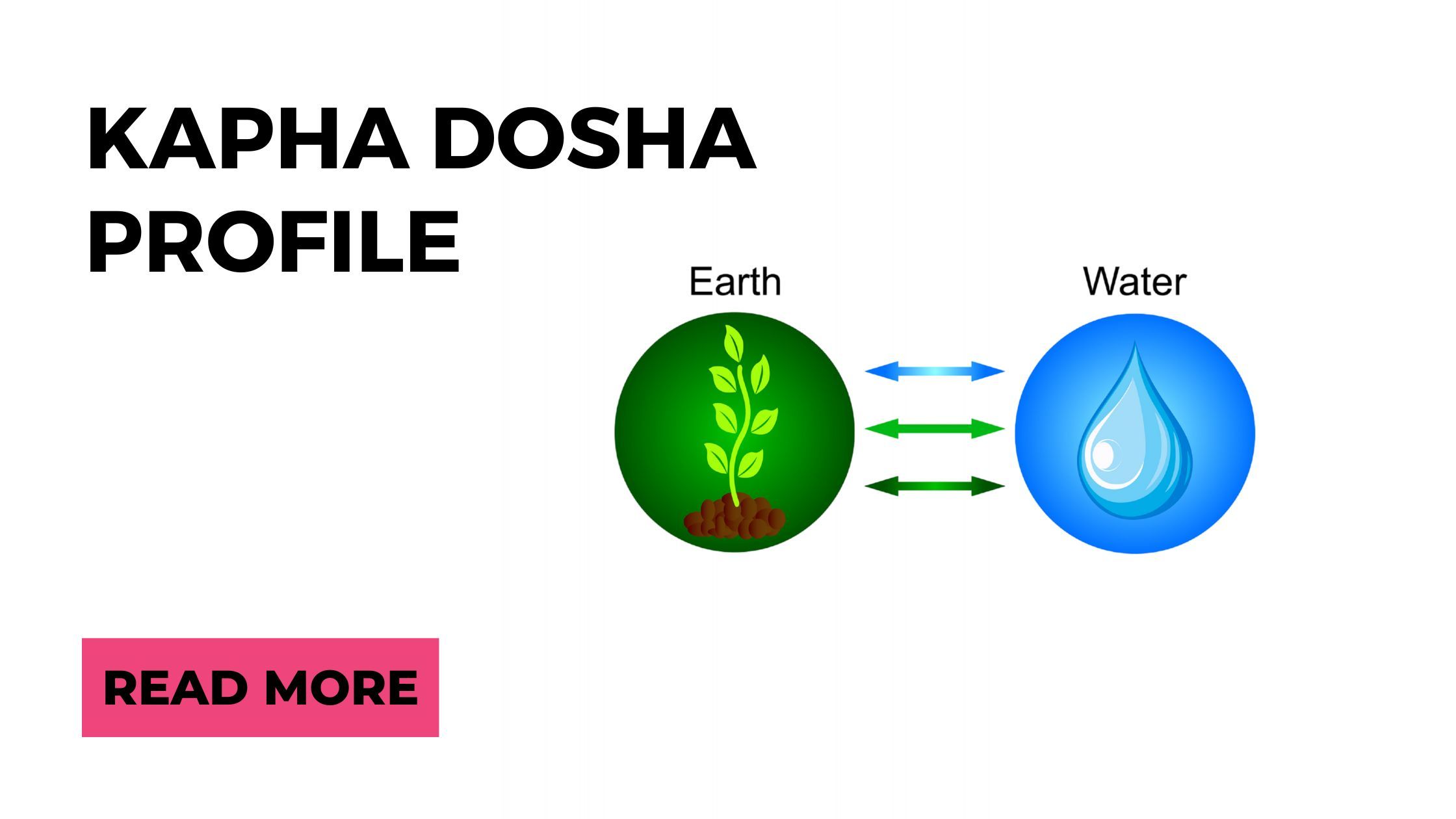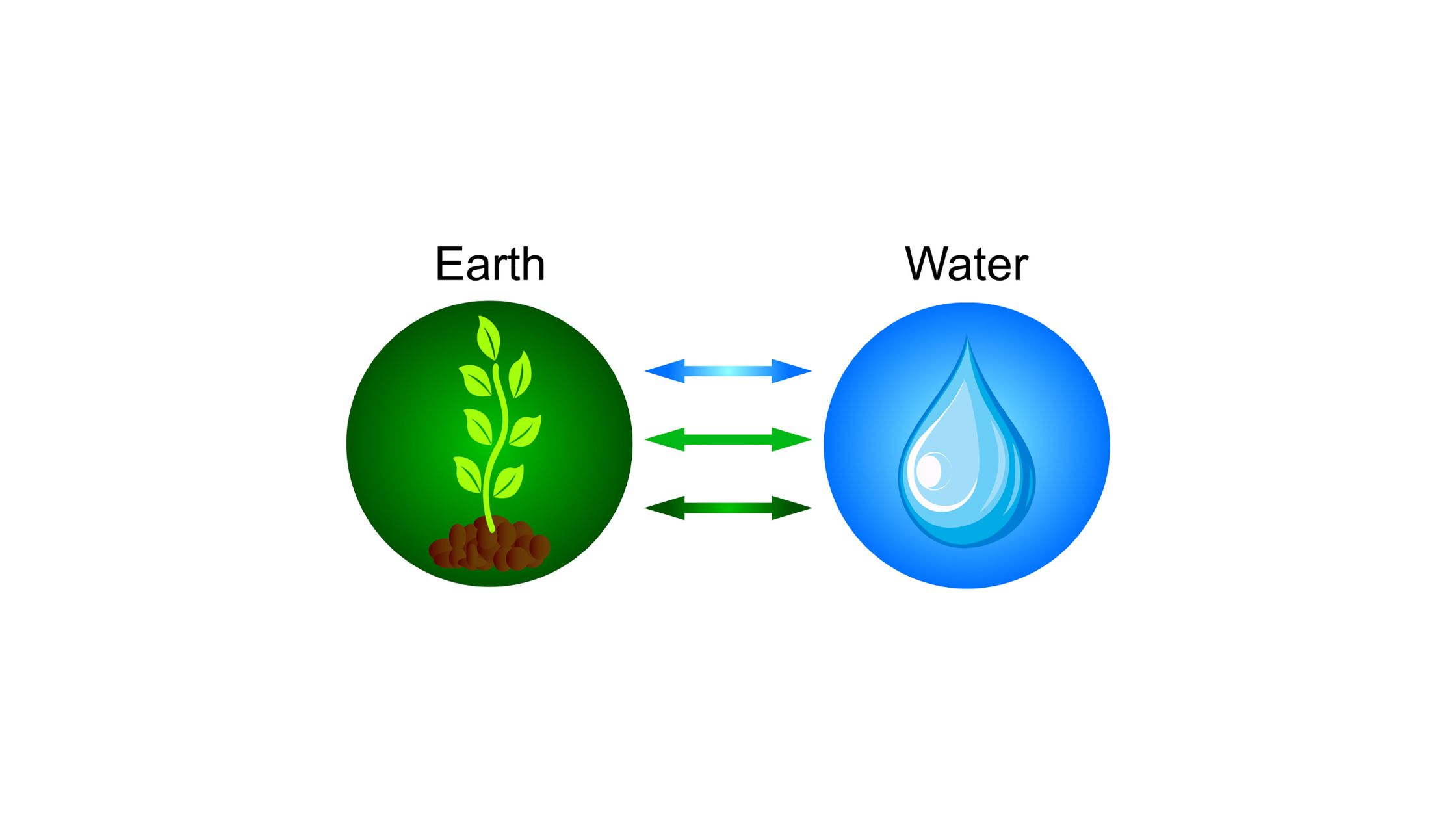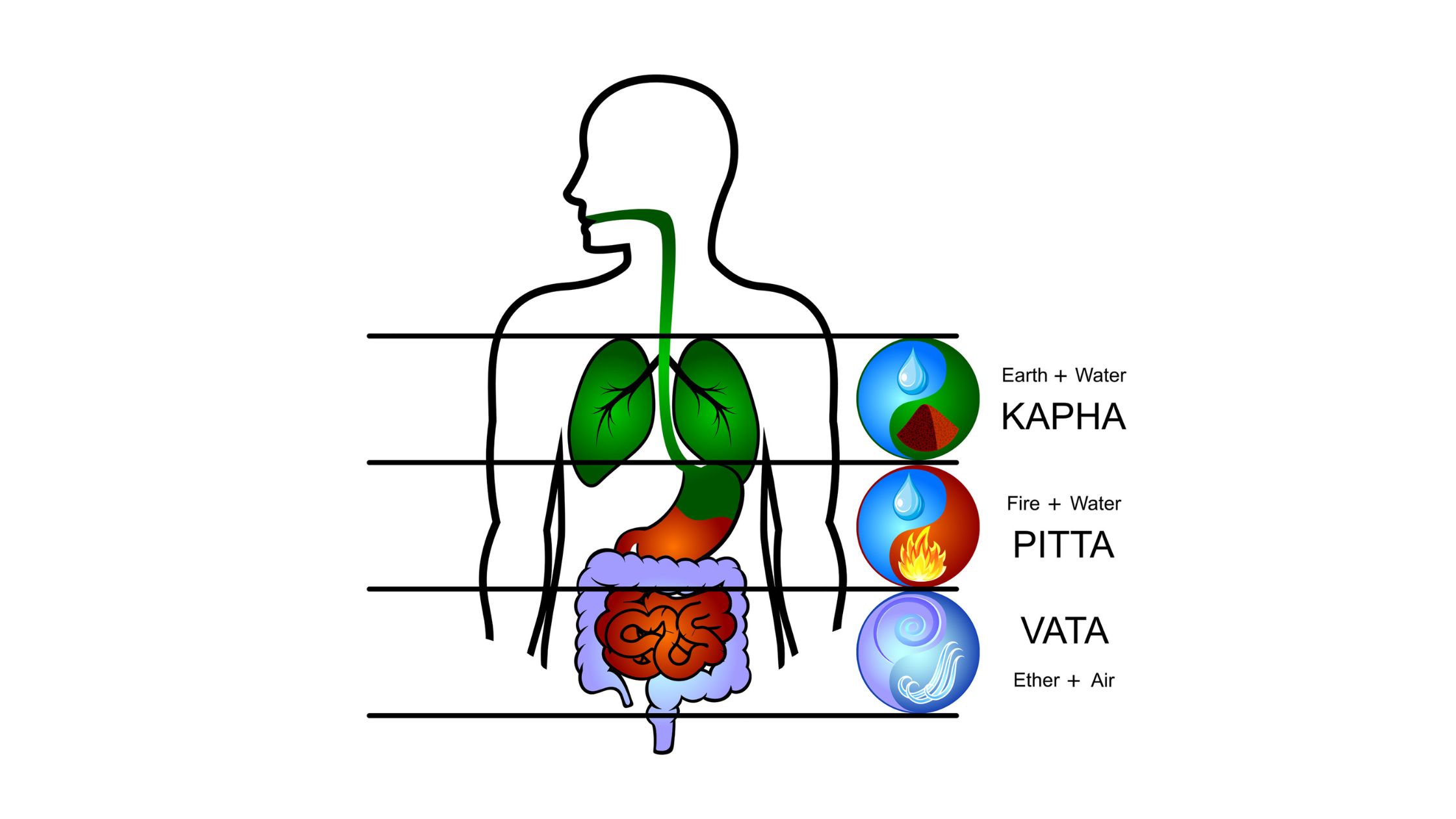Kapha Dosha Profile
Oct 28, 2025
Our third and final week of getting to know the doshas! This week we’re taking a closer look at Kapha dosha: the steady, nurturing force that gives the body structure, stability, and endurance.
Kapha is composed of the earth and water elements, which together create form, lubrication, and cohesion. It’s the principle of stability and nourishment; what holds everything together.
When balanced, Kapha brings peace, strength, and emotional depth. When disturbed, it can manifest as stagnation, attachment, or excessive accumulation, both physically and mentally.
Elements: Earth + Water
Earth provides structure and steadiness, while water gives softness and flow. Together, they create the body’s tissues, maintain moisture, and sustain endurance and compassion.
Attributes (Gunas)
Kapha expresses a combination of heavy, slow, moist, and cool qualities. These are grounding when balanced, and burdensome when excessive.
Oily
Physically:
- Moisturises and strengthens tissues, creating smoothness and stability.
- In excess, can clog pores, retain fluid, and inhibit detoxification.
Mentally/Emotionally:
- When balanced: calm, kind, loving, emotionally stable.
- When imbalanced: overly attached or possessive.
Cold
Physically:
- Slows circulation, digestion, and metabolism; can create stiffness or sluggishness.
Mentally/Emotionally:
- When balanced: cooling, soothing, calming to fiery temperaments.
- When imbalanced: withdrawal, dullness, or apathy.
Heavy
Physically:
- Provides structure, strength, and stamina.
- Too much heaviness leads to lethargy, weight gain, or sluggish digestion.
Mentally/Emotionally:
- When balanced: content, peaceful, reliable.
- When imbalanced: low mood, exhaustion, or depression.
Slow/Dull
Physically:
- Encourages endurance and stability; mitigates hyperactivity.
- In excess, slows metabolism and elimination.
Mentally/Emotionally:
- When balanced: thoughtful, patient, and grounded.
- When imbalanced: lethargic or resistant to change.
Smooth
Physically:
- Restorative and healing; builds tissue integrity.
- In excess, promotes stagnation or fluid retention.
Mentally/Emotionally:
- When balanced: calm and composed.
- When imbalanced: complacent or dull-minded.
Dense / Solid
Physically:
- Builds and maintains body mass; strengthens and soothes.
- In excess, causes heaviness, congestion, and sluggishness.
Mentally/Emotionally:
- When balanced: steady, concentrated, and reliable.
- When imbalanced: stubborn, resistant, or emotionally heavy.
Soft
Physically:
- Keeps tissues pliable and joints cushioned.
- Too much can weaken tissue tone and lead to water retention.
Mentally/Emotionally:
- When balanced: gentle, compassionate, and nurturing.
- When imbalanced: overly passive or indulgent.
Static / Stable
Physically:
- Provides grounding, strength, and consistency.
- In excess, causes blockages or accumulation of mucus and fat.
Mentally/Emotionally:
- When balanced: loyal, dependable, and grounded in faith.
- When imbalanced: attached, possessive, or resistant to growth.
Cloudy / Slimy
Physically:
- Creates cohesion and lubrication in tissues.
- In excess, impedes nutrient flow and causes congestion or water retention.
Mentally/Emotionally:
- When balanced: caring and emotionally bonded.
- When imbalanced: confusion, clouded thinking, or difficulty letting go.
Where Kapha Exists in the Body
Kapha governs structure, lubrication, and cohesion. Everything that gives the body form, steadiness, and endurance. Because of its heavy, moist, and stabilising nature, Kapha resides in the body’s dense and fluid tissues, maintaining strength and stability while preventing dryness and decay.

Primary sites of Kapha include:
- Chest and lungs, the main seat of Kapha; responsible for lubrication, moisture, and protection of the respiratory system.
- Throat, where mucus and salivary secretions keep the tissues moist and resilient.
- Head and sinuses, where Kapha maintains lubrication of the sensory organs but, when aggravated, can cause congestion or brain fog.
- Stomach (upper portion), where Kapha mixes and moistens food during the initial stages of digestion.
- Pancreas, which regulates sugar metabolism and secretes digestive enzymes.
- Joints, where synovial fluid lubricates and cushions movement.
- Plasma and lymph, the body’s internal waters that transport nutrients and maintain immune balance.
- Fat tissue, which provides insulation, stability, and long-term energy reserves.
When balanced, Kapha’s presence gives the body stamina, emotional stability, and natural immunity. When disturbed, it manifests as sluggishness, congestion, weight gain, or emotional inertia > signs that stability has turned into stagnation.
Balanced Kapha Energy Feels Like
- Self-sufficient, steady, and dependable
- Gentle, kind, and nurturing
- Emotionally stable and forgiving
- Loyal, trustworthy, and patient
- Calm presence; a grounding influence for others
- Enjoys comfort, routine, and consistency
- Slow, deliberate speech and thoughtful action
- Deeply content and peaceful
Imbalanced Kapha Energy Feels Like
- Lethargy, fatigue, or heaviness
- Weight gain or water retention
- Sinus congestion or sluggish digestion
- Over-attachment or possessiveness
- Depression or emotional withdrawal
- Overeating or emotional eating
- Resistance to change or low motivation
- Difficulty letting go of people, things, or the past
What Balances Kapha
Kapha thrives on movement, warmth, and stimulation. The goal is to keep things light, dry, and active, both physically and mentally.
Lifestyle Tips
- Eat in a peaceful, loving environment; but avoid overeating.
- Meditate or journal daily to process emotions.
- Focus on non-attachment and letting go.
- Avoid daytime naps.
- Rise early (before sunrise) to stay energised.
- Exercise daily: brisk walking, vinyasa yoga, dancing, or cardio.
- Seek out new experiences and variety.
- Dry brush or perform garshana (dry massage) before showering.
- Choose warmth: warm showers, warm foods, warm company.
- Sleep on a firm bed to avoid heaviness.
Favour:
- Foods that are light, warm, dry, and spicy.
- Bitter, pungent, and astringent tastes as they stimulate digestion and clear excess mucus.
- Spices like black pepper, ginger, cumin, mustard seed, and chili.
What Agitates Kapha
Avoid:
- Overeating or eating late at night
- Heavy, cold, oily, or sweet foods
- Excessive dairy or processed carbohydrates
- Oversleeping or inactivity
- Cold, damp climates
- Emotional eating or comfort eating
- Holding on to possessions, emotions, or routines
- Avoiding change or intellectual stimulation
Kaphas tend to hold on - to people, emotions, weight, and the past. This emotional ‘storage’ can physically manifest as extra weight or stagnation. Letting go, through movement, breath, and openness, is an excellent form of medicine.
How This Applies to the Live to Serve Model
Connection:
Supports harmony with self, others, and environment through empathy and stability.
Vitality:
Builds energy by aligning with the laws of nature, restoring strength through rhythm and nourishment.
Lifestyle Regulation:
Encourages balanced habits, consistent routines, and steady daily practices.
Habit Mastery:
Helps establish grounded, sustainable patterns that lead to long-term growth and wellbeing.
How Does this Apply to the Live to Serve Method:
- Supports Lifestyle Regulation
- Supports Healthy Thought Processes
- Connection: helps to establish a harmonious connection with one’s self, others, and environment.
- Vitality: build’s vitality by aligning with the Laws of Nature to restore energy and strength.
If this fascinates with you, maybe it’s time to go deeper.
Our Yoga Teacher Training and Ayurvedic Wellness Coaching pathways are designed to give you both the health foundations of Ayurveda and the spiritual path of yoga.
Enrolment Season Sale is on now. Join before November 31st and save thousands.
Step into your own growth, and learn to share these teachings with others.

